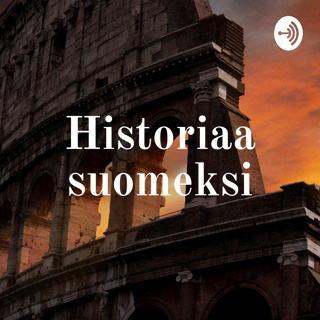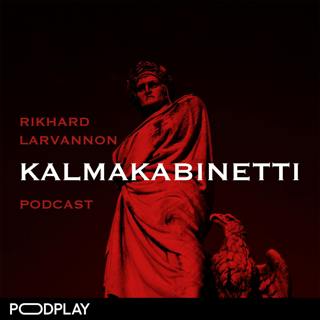
The American Ideal
Melvyn Bragg and guests discuss the American Ideal. The Twentieth Century has been called the American Century, and you don’t have to look very far to see the evidence of its enormous success. In 1919 President Woodrow Wilson said; “Sometimes people call me an idealist. Well that is the way I know I am an American. America is the only idealistic nation in the world”. America is the world’s popular culture and its centre of the expensive higher sciences and scholarship. Its riches would make Midas weep in disbelief. Its contradictions grind the molars of intellectuals, critics within without. But its imperial, seemingly unassailable fortress is swollen with many treasures and open to many weaknesses.What is the ideal that underwrites that idealism and how has it driven the phenomenal influence that the USA has gained culturally, economically and diplomatically across the globe? And was it ever ideal and is it ideal any longer?With Christopher Hitchens, writer, journalist and author of No One Left to Lie To: The Triangulations of William Jefferson Clinton; John Keane, Professor of Politics, University of Westminster and Director of the Centre for the Study of Democracy; Susan Sontag, cultural critics and essayists, and author of the novel In America.
1 Kesä 200042min

Chemical Elements
Melvyn Bragg and guests discuss the chemical elements. The aim and challenge in chemistry, according to the Encyclopaedia Britannica, is the understanding of the complex materials which constitute everything in existence since the Big Bang, when the whole universe emerged out of the two elements of hydrogen and helium. For Aristotle there were four elements: Earth, Air, Fire and Water. Now there are one hundred and eight, sixteen of which are produced artificially, and none of which figure in Aristotle's original four. But they are all still elements - defined as substances which cannot be broken down, the building blocks of all life.Today we have the key to understanding these elements, the Periodic Table, which is a pattern embedded in nature and was miraculously discovered in a dream. With Paul Strathern, former lecturer in philosophy and science, Kingston University and author of Mendeleyev's Dream: The Quest for the Elements; Dr Mary Archer, Visiting Professor of Chemistry at Imperial College, London; John Murrell, Emeritus Professor of Chemistry, University of Sussex.
25 Touko 200028min

The Wars of the Roses
Melvyn Bragg and guests discuss the Wars of the Roses which have been the scene for many a historical skirmish over the ages: The period in the fifteenth century when the House of Lancaster and the House of York were continually at odds is described by Shakespeare, in the three parts of Henry VI and Richard III as a time of enormous moral, military and political turmoil - the quintessential civil war; but twentieth century historians like K.B. Macfarlane argued the political instability is wildly overstated and there were no Wars of the Roses at all. Opposing this position are the many Tudor historians who like to claim that the Wars of the Roses represent the final breakdown of the feudal system and lead directly to the Tudor Era and the birth of the modern age.With Dr Helen Castor, Fellow and Director of Studies in History, Sidney Sussex College, Cambridge; Professor Colin Richmond, Emeritus Professor of History, Keele University; Dr Steven Gunn is a Tudor historian and Fellow and Tutor in Modern History, Merton College, Oxford.
18 Touko 200028min

Shakespeare's Work
Melvyn Bragg and guests discuss the work of William Shakespeare. He was nominated as the Man of the last Millennium and he steps into this one - on film, on stage, in academia, in schools, in private passions, probably in song and dance as well - every bit as briskly as he did in 1600. He's been called our greatest living playwright. We are told he taught us how to be modern. That he is the true Bible of our times. We are also told that his work is irrelevant to a massive percentage of the population, sandbanked by critics, neutered by establishments and, above all, embalmed in a cargo of language increasingly out of reach and ken of those who might heave him up the next century. William Shakespeare 'was not of an age, but for all time' according to Ben Johnson. That was in the seventeenth century and it's a claim that has often been repeated since, but is it really true? Is what we see in theatre and increasingly at the cinema the work of a playwright whose works live on, or are we merely watching historical reconstructions - museum pieces - with any contemporary meaning obscured by the reverence we pay to the author? And if Shakespeare is for all time, what is it about him that makes him so eternally special?With Professor Sir Frank Kermode, literary critic and author of Shakespeare's Language; Michael Bogdanov, theatre, television, opera and film director and a founder member of the English Shakespeare Company; Germaine Greer, Professor of English and Comparative Studies, Warwick University.
11 Touko 200028min

Death
Melvyn Bragg and guests discuss Death, what the 16th century philosopher Frances Bacon called, ‘the least of all evils’. A subject which has provoked thousands of reflections which live on: How has the perception, dread or even desire for our own endings shaped the development of the culture of Europe and the West, from funeral rituals to Gothic novels, to the Aids fiction and fact of today. From the celebration of the passage of a soul to the grief of the loss of a body. And how have different eras addressed the essential existential problems that death presents us with?With Jonathan Dollimore, Professor of English, York University; Thomas Lynch, poet, essayist, funeral director and author of The Undertaking - Life Studies from the Dismal Trade; Marilyn Butler, Professor of English Literature and Rector of Exeter College, Oxford.
4 Touko 200028min

Human Origins
Melvyn Bragg and guests discuss the evolution of the human species. Where did we come from - we being Homo Sapiens? Let’s not go back to the Big Bang or in search of Genesis, but sift through the evidence from biology, palaeontology, climatology and anthropology.The story of human evolution is one that stretches back over five million years, and during that time there are reckoned to have been between fifteen and twenty species of hominid to have walked this planet. From the earliest (Genus) Australopithecus (Species) Anamensis through times when there have been several divergent pre-human species existing at once, we have now arrived at a period unique in the history of the earth when a sole human species, Homo Sapiens, is in evidence right across the globe.With Leslie Aiello, Professor of Biological Anthropology, University College, London; Robert Foley, evolutionary ecologist, writer and lecturer in biological anthropology at Cambridge University; Mark Roberts, Field Archaeologist, Project Leader of Boxgrove excavation and the discoverer of ‘Boxgrove Man’.
27 Huhti 200028min

Englishness
Melvyn Bragg and guests discuss the characteristics of the English identity. “An Englishman’s word is his bond”, “An Englishman’s home is his castle”. “England is a nation of shopkeepers”, but also “the most exclusive club there is”. To Cecil Rhodes to be an Englishman was to have “won first prize in the lottery of life” but to Jonathan Swift the English were “the most pernicious race of odious vermin that nature ever suffered to crawl upon the surface of the earth”. Organised, effete, cruel, brave, inventive, determined …Who are the English? And when, how and in what heat was their English identity forged? Britain has now the highest percentage of inter-racial marriages in the world. Does that say as much about the English as their previously branded characteristics of gravity, sense of order, domesticity and propriety? What was Englishness and is it possible now to define it in anything more than the loosest and baggiest terms?With Paul Langford, Professor of Modern History, University of Oxford; Peter Mandler, Professor of Modern History at London Guildhall University; Professor Lola Young Director of the National Museum and Archives of Black History and Culture.
20 Huhti 200041min

New Wars
Melvyn Bragg and guests discuss the history of modern warfare. In the early nineteenth century the Prussian General Karl von Clausewitz seemed to define war for all time when he called it “an act of violence intended to compel our opponent to fulfil our will” and “nothing but a continuation of politics with the admixture of other means”. But after the nuclear bomb, the Cold War and the brutal and perplexing recent wars in Africa and Eastern Europe does his definition still hold true? Or are we in a new era when the idea of a continuation of peacetime politics and the notion of a national will is increasingly irrelevant? Are the technologically billion dollar new wars, coupled with the wars on the ground which are more like crimes, revolutions or more organised violence than war, a way of following Clausewitz’s notion of war as a continuation of politics by other means or do they constitute something completely different?With Sir Michael Howard, Emeritus Professor of Modern History, Oxford University; Dr Mary Kaldor, Director of the Programme on Global Civil Society, London School of Economics; General Sir Michael Rose, former Commander of the United Nations Protection Force in Bosnia and author of Fighting for Peace: Lessons from Bosnia.
13 Huhti 200027min






















